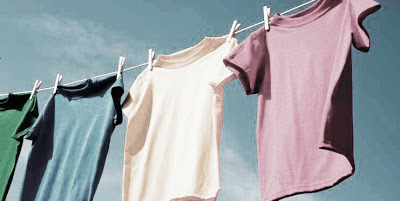I am frequently asked how many times you can wash a garment with a heat transfer applique before it deteriorates. Durability of this material all depends on the type of material that you are using and garment care. If you wash and dry the garment properly, a high quality polyurethane applique should last just as long as the garment itself.
Nothing shortens the life of a heat transfer graphic faster than improper washing and drying of the garment. To ensure optimal durability, you should follow the few simple rules that I have listed below.
Washing.
Washing garments decorated with heat transfer appliques involves a little more than separating white garments from colored fabrics:
- To protect the heat transfer applique from abrasion as garments rub together during the wash cycle, turn the garment inside out.
- Wash the garment at low or warm water temperature settings. Refer to the washing instructions on the garment label and the product application guide for the heat transfer material. In the ideal world, like fabrics should be separated and washed together.
- Use a mild detergent. Never use bleach.
- To protect the image from abrasion as garments rub against each other, turn it inside out.
- Tumble dry on the low temperature setting. (So clothes can actually tumble as they dry, never overstuff the drier. This practice will also minimize wrinkles.)
- Don’t overdry your clothes. Remove clothes from the dryer while they are slightly damp. Put clothes on hangers for final drying. Better yet, hang your clothes to dry on an old-fashioned clothes line. (Do not hang garments outside in the sun to dry or the UV light will accelerate the fading process.



